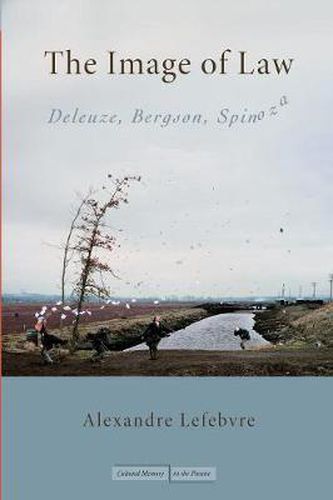Readings Newsletter
Become a Readings Member to make your shopping experience even easier.
Sign in or sign up for free!
You’re not far away from qualifying for FREE standard shipping within Australia
You’ve qualified for FREE standard shipping within Australia
The cart is loading…






The Image of Law is the first book to examine law through the thought of twentieth-century French philosopher Gilles Deleuze. Lefebvre challenges the truism that judges must apply and not create law. In a plain and lucid style, he activates Deleuze’s key themes-his critique of dogmatic thought, theory of time, and concept of the encounter-within the context of adjudication in order to claim that judgment has an inherent, and not an accidental or willful, creativity. The book begins with a critique of the neo-Kantian tradition in legal theory (Hart, Dworkin, and Habermas) and proceeds to draw on Bergson’s theory of perception and memory and Spinoza’s conception of ethics in order to frame creativity as a necessary feature of judgment.
$9.00 standard shipping within Australia
FREE standard shipping within Australia for orders over $100.00
Express & International shipping calculated at checkout
The Image of Law is the first book to examine law through the thought of twentieth-century French philosopher Gilles Deleuze. Lefebvre challenges the truism that judges must apply and not create law. In a plain and lucid style, he activates Deleuze’s key themes-his critique of dogmatic thought, theory of time, and concept of the encounter-within the context of adjudication in order to claim that judgment has an inherent, and not an accidental or willful, creativity. The book begins with a critique of the neo-Kantian tradition in legal theory (Hart, Dworkin, and Habermas) and proceeds to draw on Bergson’s theory of perception and memory and Spinoza’s conception of ethics in order to frame creativity as a necessary feature of judgment.